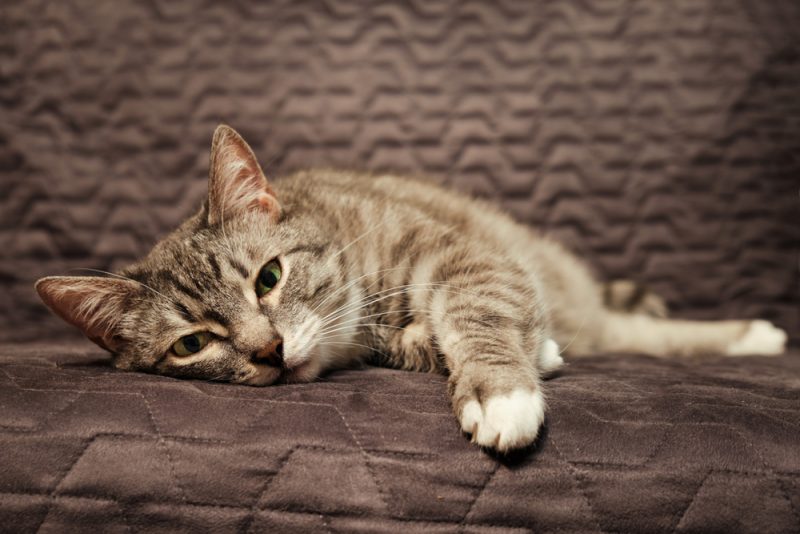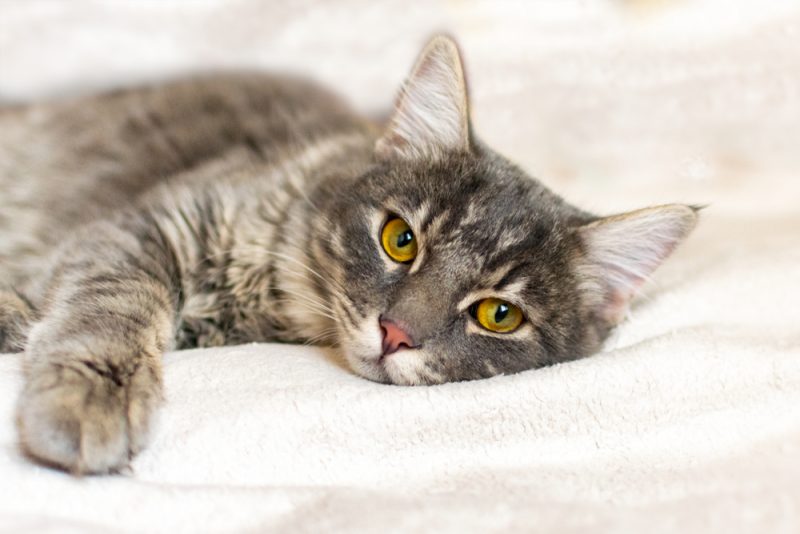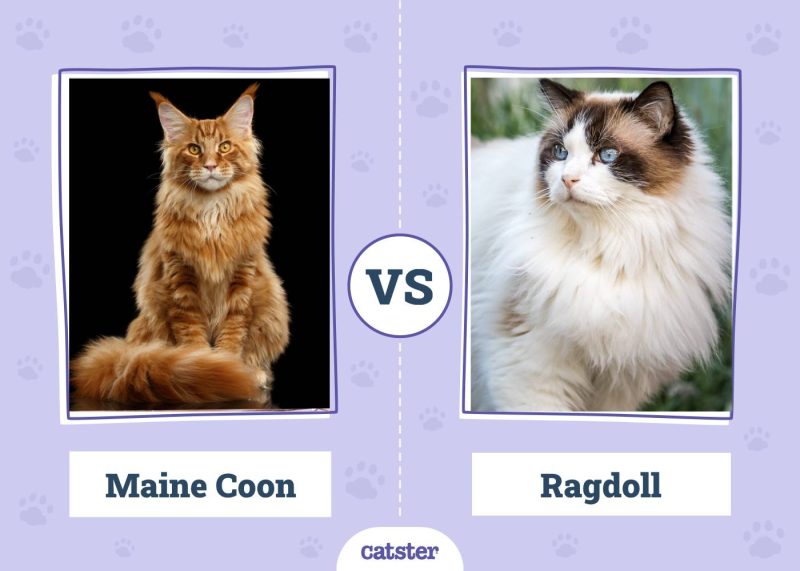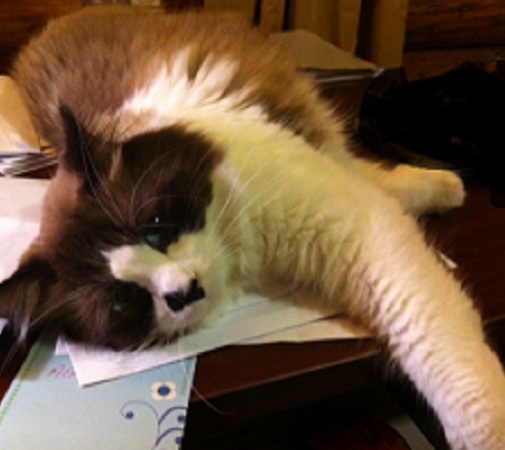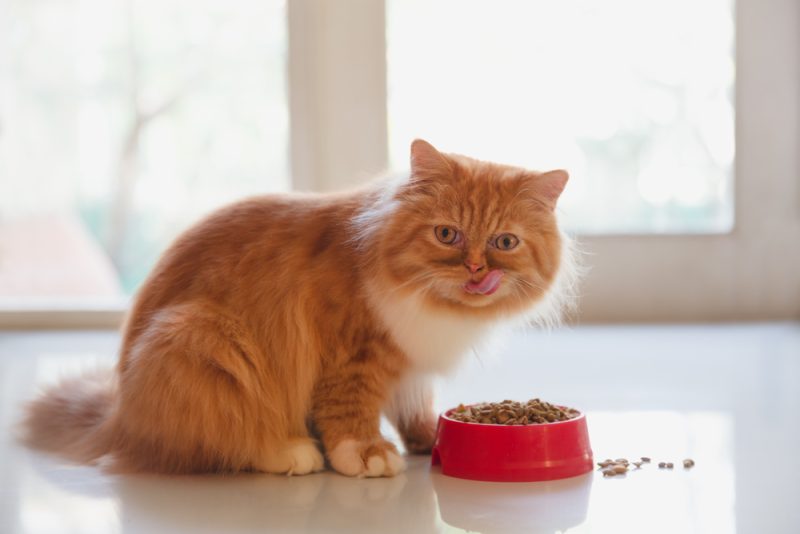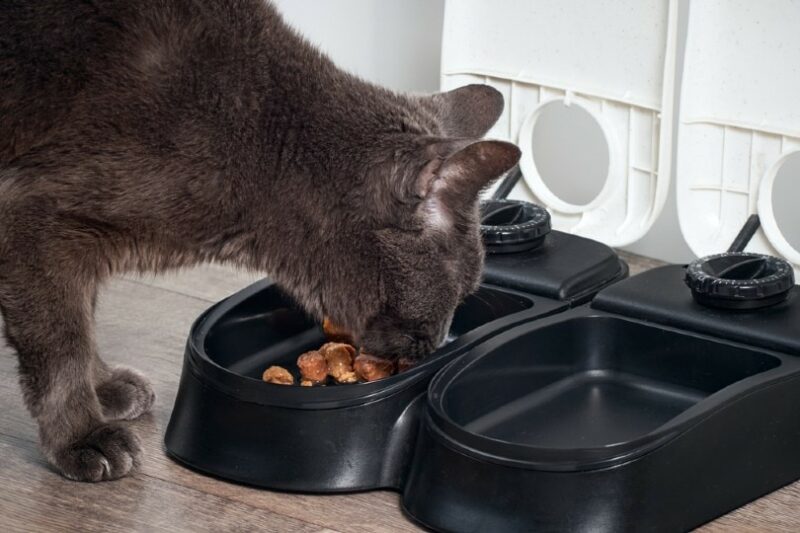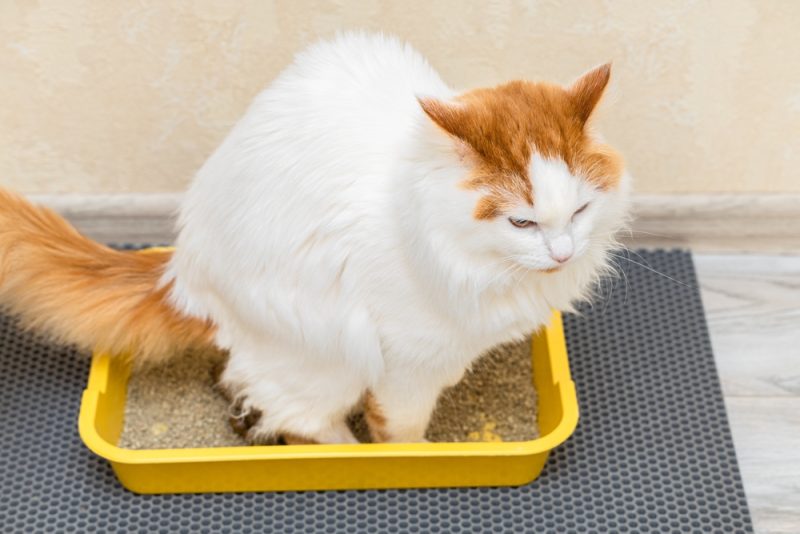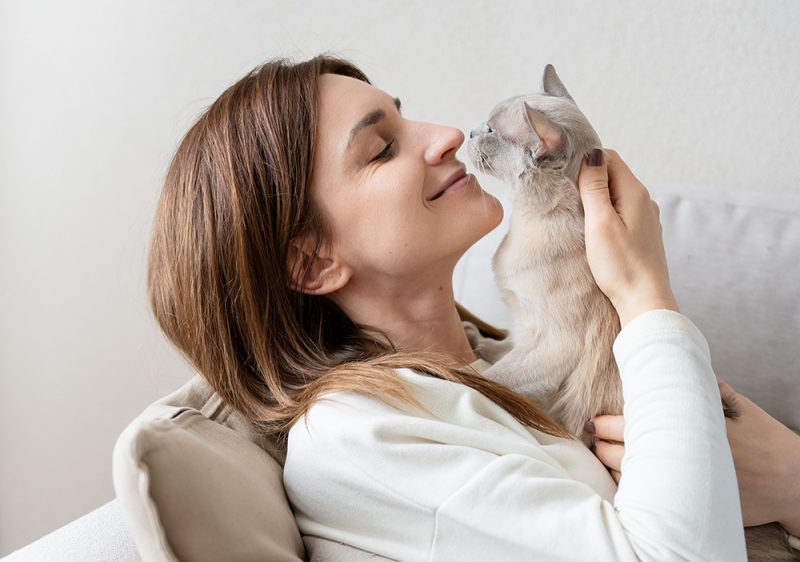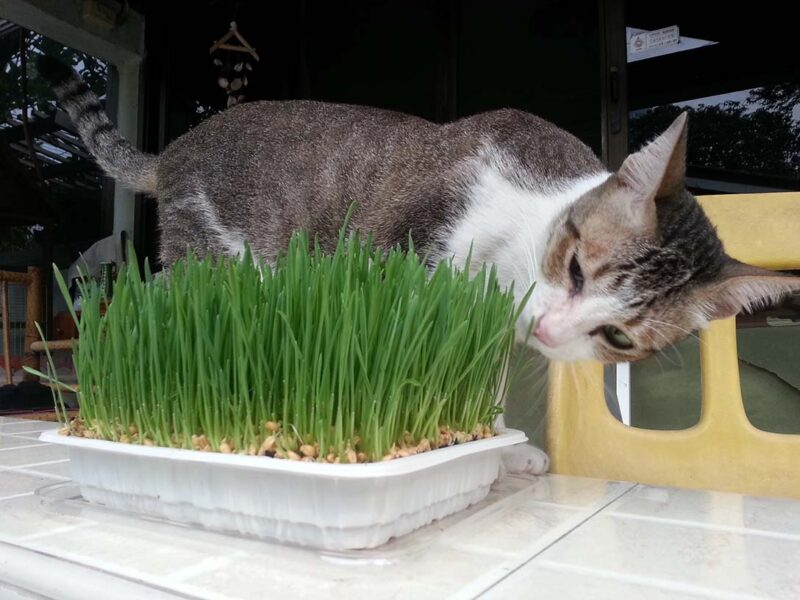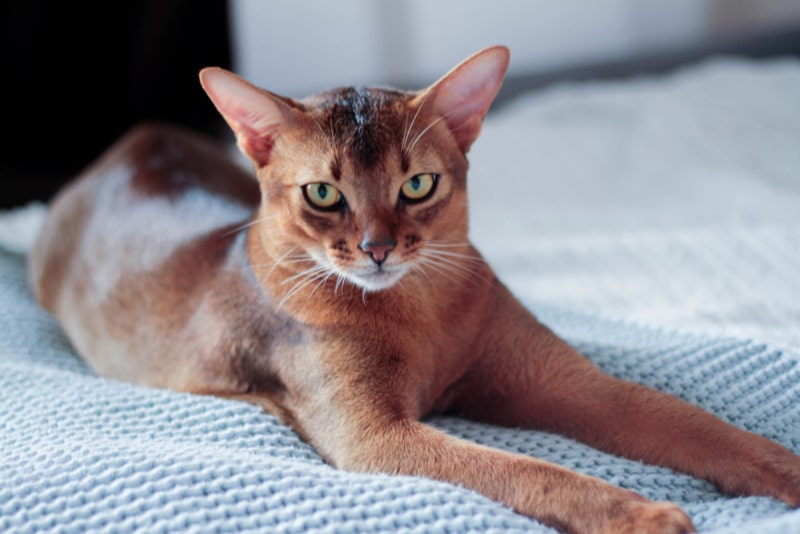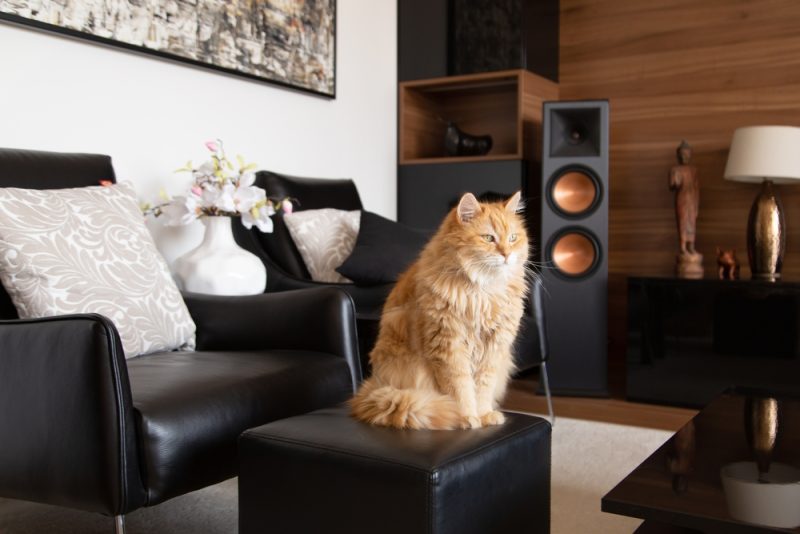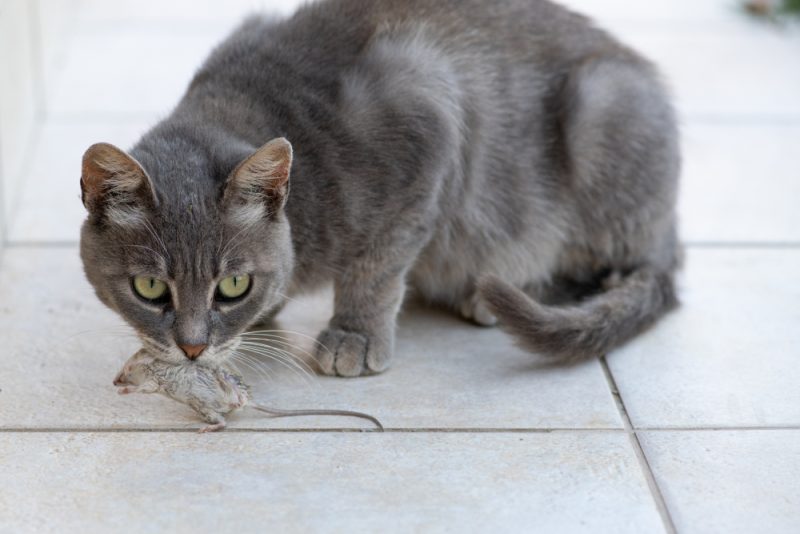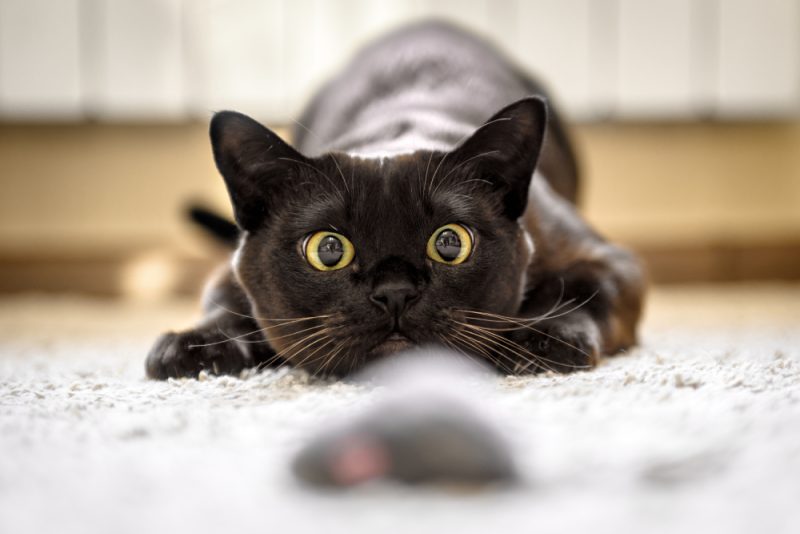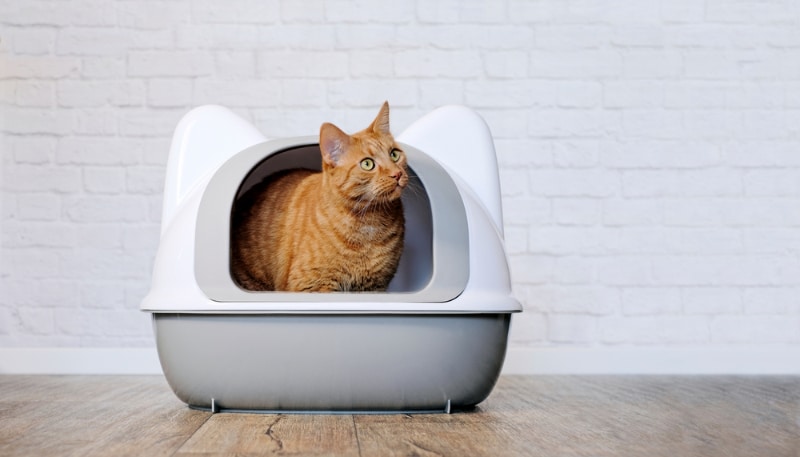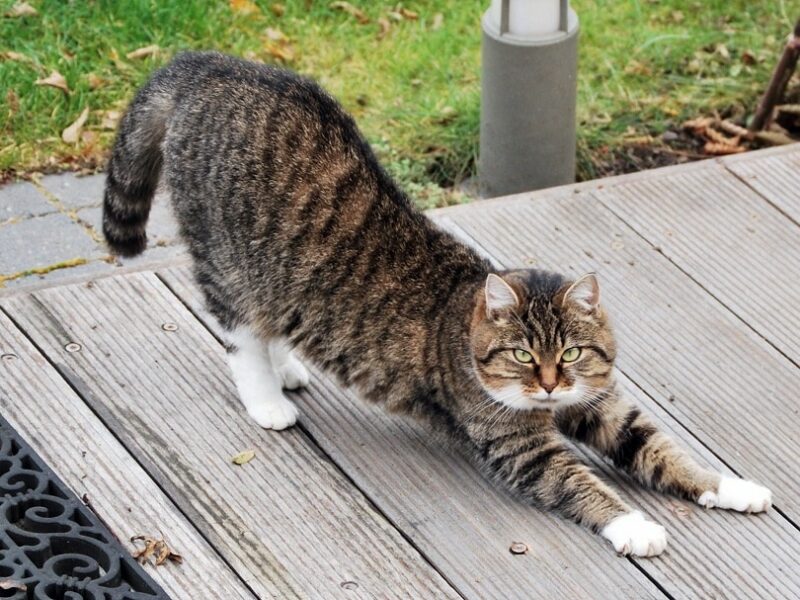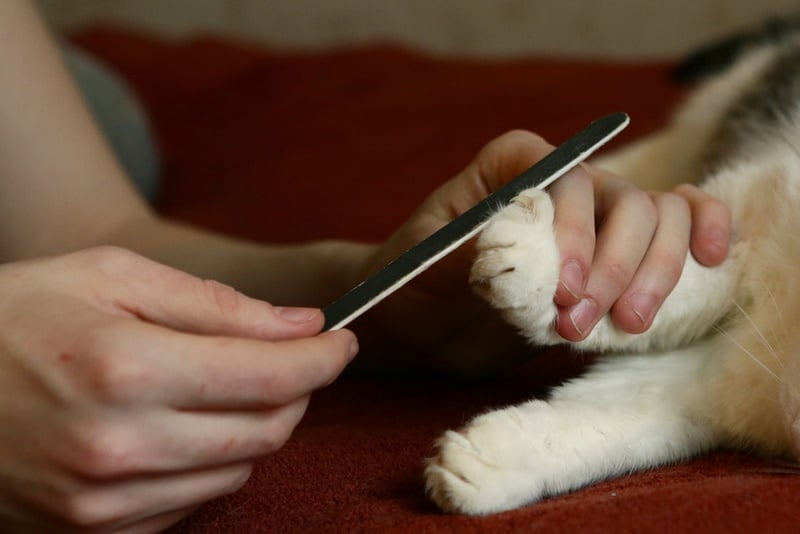Epilepsy is probably one of the scariest diseases out there. The first time it happens, it’s always traumatic—for the cat and the humans.
It is good to review and know what to do during a seizure, even if your cat does not have epilepsy, in case it suddenly happens. Especially since you will not have much time to act, and yet a lot can happen in that short amount of time.
Knowing more about epilepsy and seizures can help you stay calm and prioritize the best things to do. Remaining calm for your spasming cat is the best thing you can do, no matter how much they may panic.

What Is Epilepsy?
Epilepsy is when a cat has multiple seizures repeatedly, over a long period of time, it is a chronic problem.
A seizure is when an individual has a sudden abnormal episode of violent shaking, convulsing, or twitching—they usually lose consciousness and control of their body. It is what may be referred to as ‘a fit’. During a seizure, there is a sudden abnormal charge of chemical-electrical activity in the brain, which causes spasmodic convulsions and loss of control of the body.
Epilepsy is a disease where multiple seizures happen repeatedly. A cat may have one seizure, or they might have clusters of multiple seizures every few days, weeks, and months repeatedly. There may not be any identifying triggers that start the seizures. They usually occur randomly and without much warning, making it a very scary and unpredictable problem.
 What Are the Signs of Epilepsy?
What Are the Signs of Epilepsy?
Epilepsy can vary depending on how severe the seizures are. So, some may be very violent, whereas others are less so. There are three stages to a seizure. Each stage is discussed below.
1. Pre-ictal phase
Immediately before the active phase of a seizure is the pre-ictal phase, where a cat feels abnormal, acts stressed out and nervous. Signs of the pre-ictal phase include:
- Stressed
- Abnormal head movements
- Restlessness
- Drooling
- Vocalizing
- Hiding
2. Seizure
During the seizure itself, the cat loses control of their body and spasmodically moves their limbs. Seizures can last a few seconds or can also continue for up to 5 minutes. Sometimes a seizure does not stop and needs emergency treatment—immediately. The signs of a seizure include the following:
- Spasmodic convulsions
- Paddling or jerking of their legs
- Tense spine
- Head pulled back
- Drooling
- Loss of consciousness
- Shaking
- Loss of control over their bladder and bowels
- Vocalizing
If a seizure does not stop within 1 to 2 minutes, start heading to the vet.
If you need to speak with a vet but can't get to one, head over to PangoVet. It's an online service where you can talk to a vet online and get the advice you need for your pet — all at an affordable price!

3. Postictal
During the postictal phase, the cat acts fragile and still abnormal. It can last for 1-2 days after the seizures have stopped.
- Lethargy and depression
- Wobbly
- Over excitement
- Pacing
- Confusion
- Tiredness
Between seizure events, cats with epilepsy act normally. Between seizures, it is hard to tell if a cat has epilepsy or when the next one will happen.
 What Are the Causes of Epilepsy?
What Are the Causes of Epilepsy?
The Physiology of Seizures
Seizures start in the brain. It is helpful to think of a trigger point in the brain, some random spot in the brain, causing a cascading electrochemical chain reaction that radiates out to the rest of the brain.
Because the brain is responsible for coordinating control and movement for the entire body, this abnormal electrochemical spasm causes abnormal messages to be fired-off to the body, so it convulses and shakes.
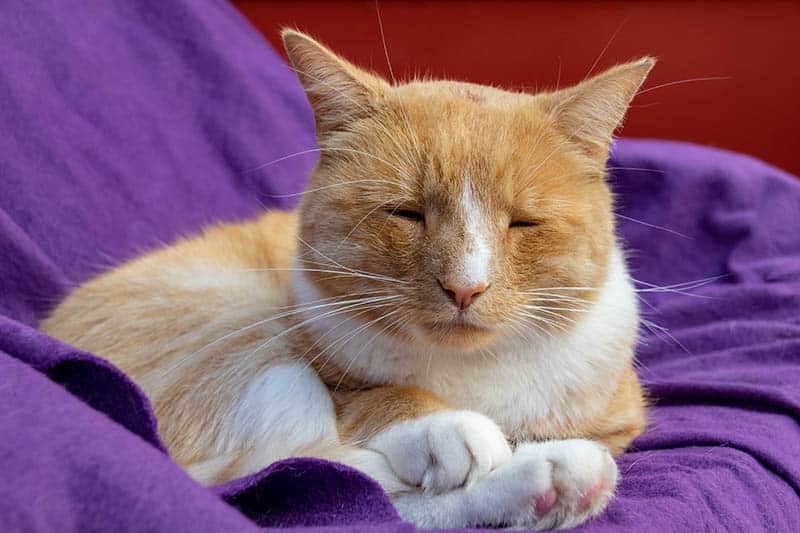
The Physical Causes
There are multiple causes of seizures, all of which change the brain’s delicately balanced electrochemical regulation.
Many of the physical causes of epilepsy in cats are primary problems with the brain itself. However, some metabolic diseases can also cause the brain to function abnormally as they change the chemical composition of the blood and brain fluid.
- Brain injury
- Brain tumors
- Kidney disease
- Liver disease
- Brain infections (bacterial or parasitic)
- Toxic poisoning (i.e., ibuprofen or acetaminophen)
Idiopathic epilepsy is infamous in dogs but is not common in cats. In idiopathic epilepsy, the cause for the seizures cannot be identified even though there seems to be a genetic correlation.
In cats, seizures are caused by ‘things’ that cause the brain to malfunction—almost always. It is usually a primary brain ‘thing’, something directly wrong with the brain, for example, a tumor in the brain. It is much less common for it to be a secondary ‘thing’ such as kidney disease causing electrolyte abnormalities to trigger brain misfiring.
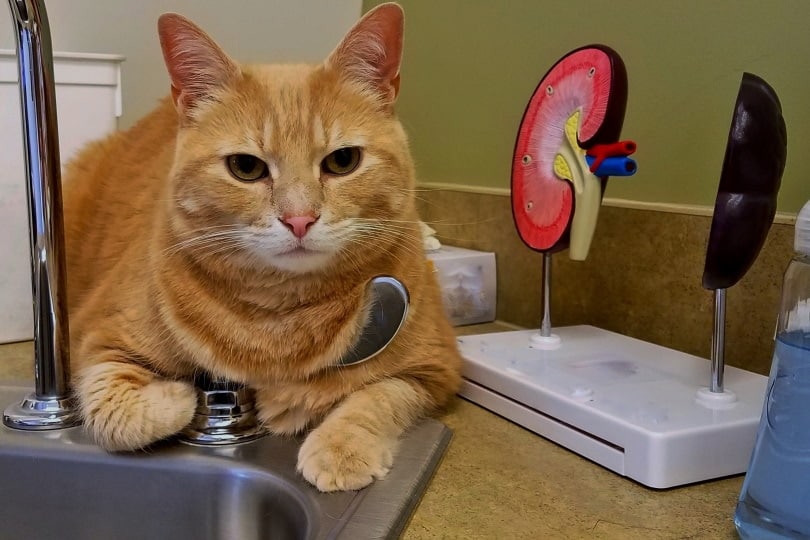
 How Do I Care for a Cat With Epilepsy
How Do I Care for a Cat With Epilepsy
How your cat is medically treated will depend on what caused the seizures in the first place. Getting the cause of seizures under control is the most important and first step of treatment. Without getting that under control, the seizures will not stop.
Protect Yourself First
It is very easy for your cat to hurt you while they are seizing. They can accidentally bite or scratch you, even if they normally NEVER would. Plus, even if they are conscious, they do not have control of their body and are very scared so they may suddenly choose violence.
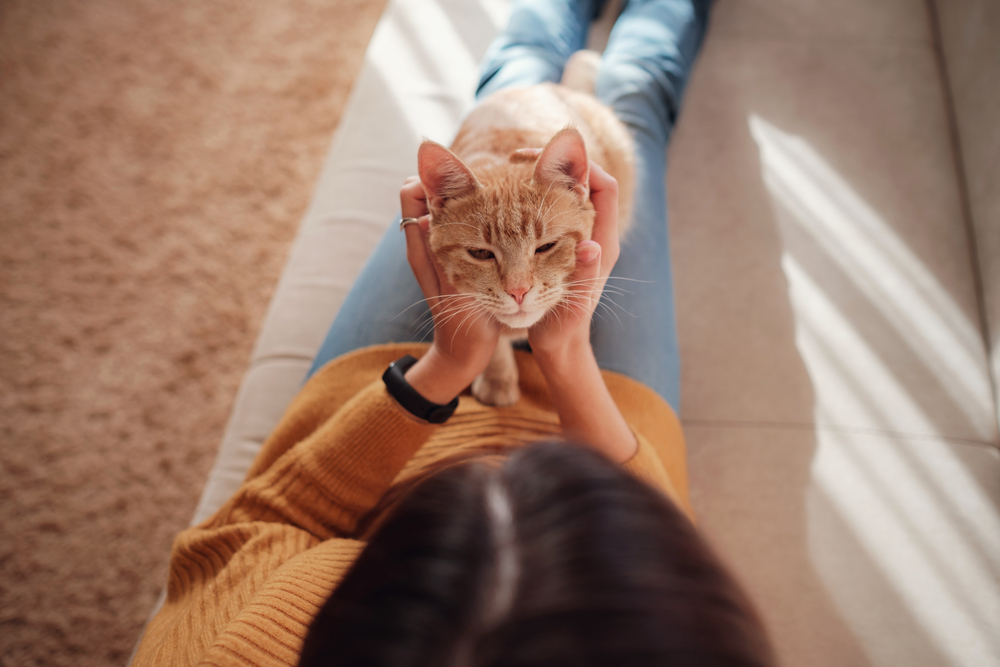
Protect the Cat Second
There is not much to do during a seizure. You cannot stop the abnormal brain spasm with attention, pets, or cuddles. But monitor them closely, anyway, do not abandon them!
Make sure they cannot fall off whatever they are on. And make sure nothing will fall on them. Don’t let them hurt themselves as they convulse on the hard ground.
Long-Term Considerations for a Long-Term Problem
Watch out for dangerous areas for seizures. You may need to seizure-proof your house so your cat doesn’t get seriously hurt when they lose control.
- Windows
- Tall cabinets
- Small spaces where they can hide and get stuck seizing, but you can’t get to them
- Stairs or balconies
- Precariously balanced decorations (vases or statues that are easy to knock over)
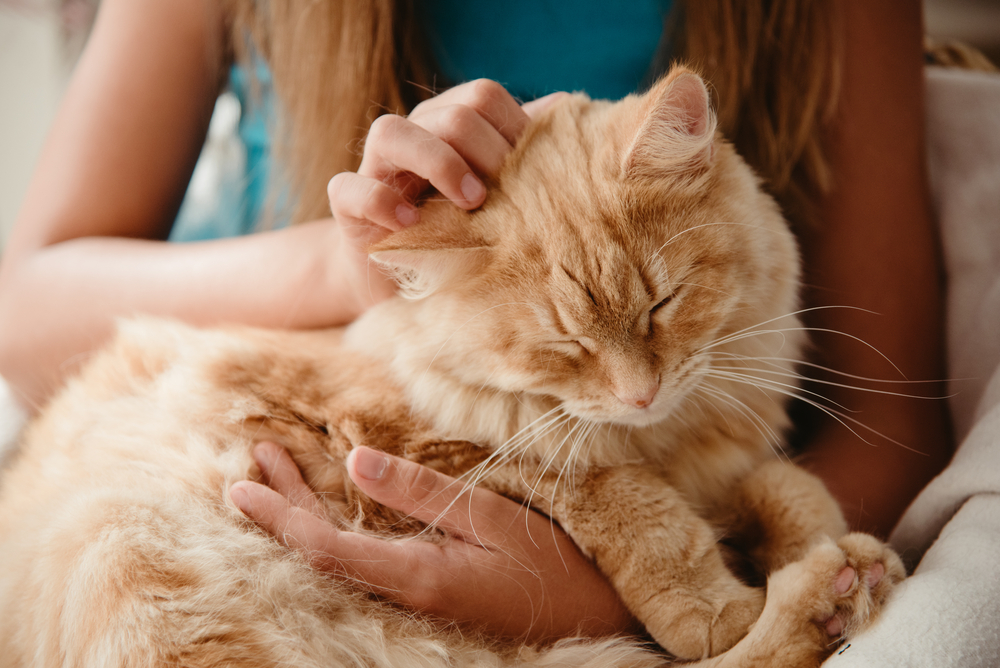
Record It
It is also very helpful to keep a record of your cat’s seizures. Record the date, how long each seizure was, how violent, and any other information that you suspect. This can help you track changes and pick up trends, especially if they get worse—or hopefully better. You can also record a video for your vet if you have time.

Frequently Asked Questions (FAQs)
What is the prognosis for my cat with epilepsy?
Most cats will recover from a seizure, but many cats do get hurt while they are seizing. So, keeping them safe while they are seizure is important. They can cut themselves, fracture bones, and tear muscles. None of it is good.
However, the ‘thing’ causing the seizures will be the ultimate determination of prognosis and how well the cat responds to treatment of that ‘thing’.
Sometimes if a seizure does not stop, the prognosis is not good. Something has gone wrong, and they need immediate veterinary intervention.
What can I expect at the vet?
Diagnosing seizures can be difficult because, most of the time, when your cat is sitting in front of the vet, they are not seizing. So, it can feel a little bit like blindly searching for answers.
- History. If your cat has a seizure, bring it to the vet and expect to answer a lot of questions. These questions can sometimes feel invasive, but the vet is just trying to figure out what could have happened to your cat.
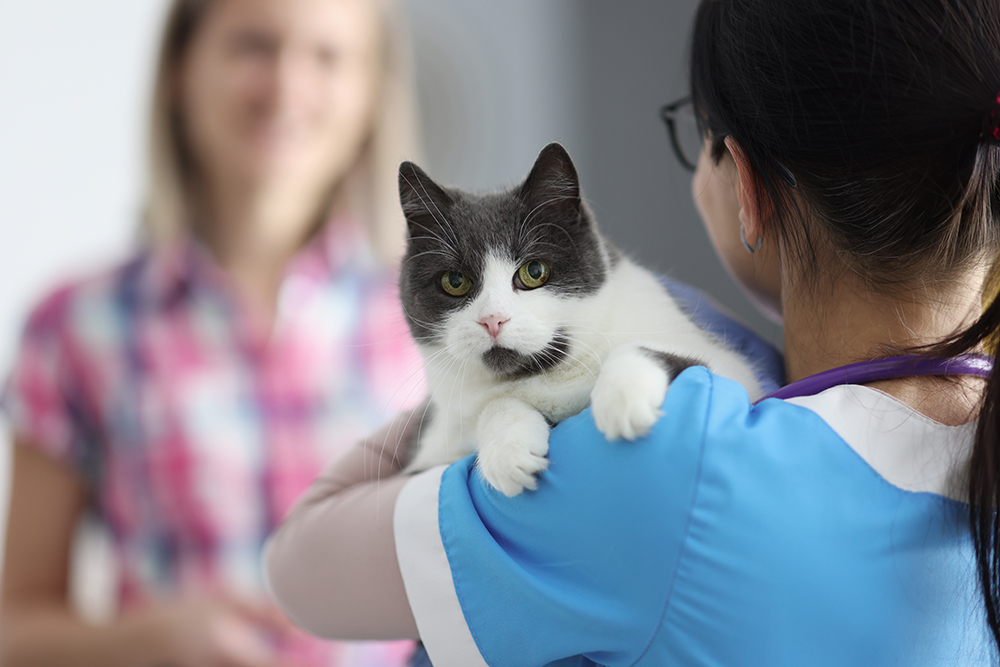
They are also trying to figure out what kind of life your cat has. Indoor cats will be exposed to things that cause seizures that outdoor cats might not, and vice versa. By answering lifestyle and sign questions as detailed as you can, you help paint a diagnostic image for your vet.
- Diagnostic tests. They will also likely need to run diagnostic tests. Bloodwork, X-rays, diagnostic imaging, urine samples. They are trying to figure out what that ‘thing’ is that caused the seizure medically.
- Confirmation. Since the vet most likely did not see the seizure, they will ask you to describe it. Seizures can be varied, but also, they can look like a lot of different things. And people use terms interchangeably. For example, a ‘fit’ can describe a seizure, but it can also describe a cat suddenly collapsing or ‘passing out’. Both of these are very different clinically in terms of diagnoses and medicine.
So, through your description, the vet is just making sure that you are all talking about the same thing.
Conclusion
Seizures in cats are usually a sign that something else is going on and that something needs to be sorted out. It can be a long winding road to treatment, and it might not always be successful. Making the appropriate accommodations for your epileptic cat can be a lot of work. And it can be a chronically stressful problem.
Featured Image Credit: Zhuravlev Andrey, Shutterstock

